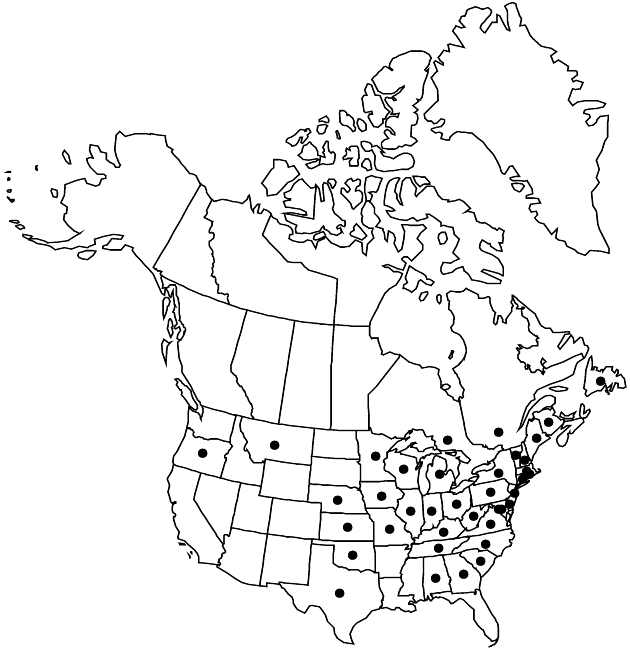Difference between revisions of "Helianthus ×laetiflorus"
Syn. Pl. 2: 476. 1807.
FNA>Volume Importer |
imported>Volume Importer |
||
| (5 intermediate revisions by 2 users not shown) | |||
| Line 12: | Line 12: | ||
|name=Helianthus severus | |name=Helianthus severus | ||
|authority=E. Watson | |authority=E. Watson | ||
| + | |rank=species | ||
}} {{Treatment/ID/Synonym | }} {{Treatment/ID/Synonym | ||
|name=Helianthus superbus | |name=Helianthus superbus | ||
|authority=E. Watson | |authority=E. Watson | ||
| + | |rank=species | ||
}} | }} | ||
|hierarchy=Asteraceae;Asteraceae tribe Heliantheae;Asteraceae (tribe Heliantheae) subtribe Helianthinae;Helianthus;Helianthus ×laetiflorus | |hierarchy=Asteraceae;Asteraceae tribe Heliantheae;Asteraceae (tribe Heliantheae) subtribe Helianthinae;Helianthus;Helianthus ×laetiflorus | ||
| Line 44: | Line 46: | ||
-->{{#Taxon: | -->{{#Taxon: | ||
name=Helianthus ×laetiflorus | name=Helianthus ×laetiflorus | ||
| − | |||
|authority=Persoon | |authority=Persoon | ||
|rank=species | |rank=species | ||
| Line 59: | Line 60: | ||
|publication year=1807 | |publication year=1807 | ||
|special status= | |special status= | ||
| − | |source xml=https:// | + | |source xml=https://bitbucket.org/aafc-mbb/fna-data-curation/src/2e0870ddd59836b60bcf96646a41e87ea5a5943a/coarse_grained_fna_xml/V19-20-21/V21_388.xml |
|tribe=Asteraceae tribe Heliantheae | |tribe=Asteraceae tribe Heliantheae | ||
|subtribe=Asteraceae (tribe Heliantheae) subtribe Helianthinae | |subtribe=Asteraceae (tribe Heliantheae) subtribe Helianthinae | ||
Latest revision as of 20:12, 5 November 2020
Perennials, 100–200 cm (rhizomatous). Stems erect, slightly hairy. Leaves basal and cauline; mostly opposite; petioles 1–5 cm; blades lanceolate to lance-ovate, 10–25 × 2–8 cm, bases cuneate, margins serrulate to serrate, abaxial faces sparsely hispid, gland-dotted. Heads 3–6. Peduncles 7–14 cm. Involucres hemispheric, 14–18 mm diam. Phyllaries 25–35, oblong-lanceolate, 7–12 × 3–3.5 mm (strongly unequal), apices acuminate, abaxial faces usually puberulent, gland-dotted. Paleae 9–10 mm, entire or 3-toothed (apices reddish). Ray florets 15–20; laminae 25–37 mm. Disc florets 75+; corollas 7–7.5 mm, lobes reddish (at least at tips); anthers dark, appendages dark to yellowish (style branches yellow). Cypselae (seldom formed) 4–5 mm, glabrate; pappi of 2 aristate scales 2.5–3.5 mm. 2n = 102.
Phenology: Flowering late summer–fall.
Habitat: Roadsides, fields
Elevation: 0–300+ m
Distribution

N.B., Nfld. and Labr. (Nfld.), Ont., Que., Ala., Conn., Del., D.C., Ga., Ill., Ind., Iowa, Kans., Ky., Maine, Md., Mass., Mich., Minn., Mo., Mont., Nebr., N.H., N.J., N.Y., N.C., Ohio, Okla., Oreg., Pa., R.I., S.C., Tenn., Tex., Vt., Va., W.Va., Wis.
Discussion
Helianthus ×laetiflorus is introduced in Ontario, Newfoundland, and probably in Quebec; it was excluded from British Columbia by G. W. Douglas et al. (1989–1994, vol. 1); and it was reported in New Brunswick by H. R. Hinds (2000).
Plants called Helianthus ×laetiflorus are usually interpreted to be hybrids and backcrosses of H. tuberosus and H. pauciflorus; they are widely cultivated and often escape. An alternative treatment has been to use the name H. laetiflorus for plants that are treated here as H. pauciflorus, sometimes with infraspecific taxa.
Helianthus atrorubens Lamarck 1789, not Linnaeus 1753, has been applied to plants here called H. ×laetiflorus.